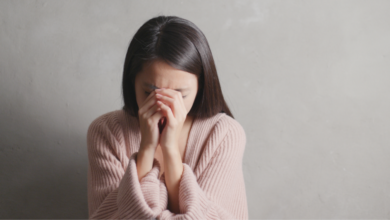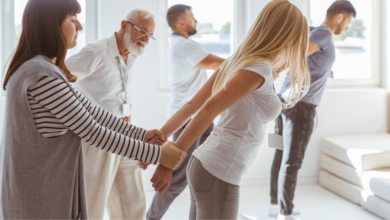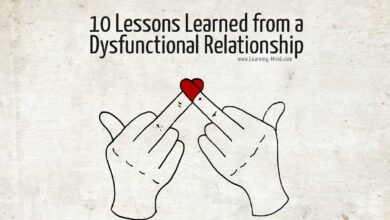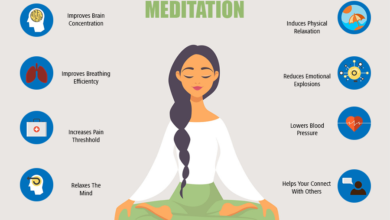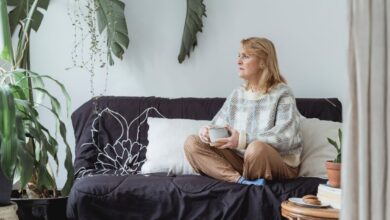
HOW TO GET A GOOD NIGHT SLEEP WHEN STRESSED
Let’s discuss good night sleep when stressed. If it is already past midnight and you can still see your ceiling, something is wrong. Well, obviously, you are unable to sleep and what’s more worrying is that this happens on a daily basis. Yes, stress and anxiety can keep you awake all night and ruin your day just like that.
However, there are two very important questions you should ask yourself;
- Are you awake because of stress? Or,
- Are you experiencing stress because you cannot sleep?
Well, it can be both at the same time, but the end result will be the same. Stress can cause sleep disorders or worsen the existing ones.
So, what is it can you do to overcome this “menace”? Of course, you can consult a medical specialist if your problems are getting severe. Additionally, you can try some very effective techniques for relieving nighttime stress. Let’s get to the point straight away!
How Sleep Reduces Stress?
Sleep is one of the most amazing gifts from the creator; it is a very powerful stress reducer. A regular sleep routine helps in so many ways, such as;
- Calms and restores the body
- Regulates your mood
- Improves concentration
- Boosts your decision-making skills
- Betters problem-solving skills
On the other hand, lack of sleep can reduce your energy as well as mental clarity. Lack of sleep also makes you;
- More impulsive
- Emotionally reactive
- More inclined towards negative stimuli
Not only can these things affect your professional life, but they also impede your mental growth. In fact, you may start facing problems in your relationship and domestic life.
Alright, now we know what lack of sleep and stress can do to us. It is time to move to the remedies.
Best Tips for Relieving Nighttime Stress
Here are some very effective tips for relieving nighttime stress to give you a peaceful sleep. You can use these relaxation strategies separately or make a combination of two or more.
1- Meditation
Meditation is a healing practice that involves your body and mind. It helps you develop an attitude that allows the thoughts to play “in-and-out” without any judgments. Factually, meditation is a very widespread strategy to deal with insomnia. Here are some common types of meditation.
· Body Scan Meditation
It is a technique in which you gradually concentrate on a specific body part of yours and try to feel any sensation or pain. The person practicing this technique focuses on one body part at a time. You can scan your body parts in a systematic way, starting from head to toe. Or, you can do it randomly. This helps you divert your attention from things causing your stress or anxiety.
· Mindfulness Meditation
Mindfulness meditation is a process in which you observe your emotions, thoughts, and feelings and let them pass without any judgments. Technically, it helps you focus on one thought at a time without thinking about anything else. This strategy has been very effective in reducing sleep disturbances in adults. However, it can be difficult to practice this effectively if you are a beginner.
· Guided meditation
Guided meditation helps you meditate with the help of external verbal stimuli. Those external verbal stimuli can be nature sounds, music, or anything that helps you relax. Basically, you listen to a stimulus and try to imagine a calming place or situation to relax. You can find tonnes of guided meditations on different apps such as Calm and Headspace.
2- Meditative Movement
Meditative movement is a combination of three things:
- Gentle physical movement
- Meditation attentiveness
- Focused breathing
Qigong, tai chi, and yoga are some of the prime examples of meditative movement. The best thing about these meditation techniques is that they don’t require any particular equipment or place.
Yoga has proved to be one of the best options for both physical and mental health. Yoga, along with many physical benefits, has been very successful in dealing with mental problems. For instance, yoga is very beneficial in;
- Sleep problems management
- Stress management
- Mental-wellbeing improvement
Similarly, Qigong and tai chi have proved to be helpful in improving the emotional wellbeing and better sleep. You can add these practices to your daytime routine or nighttime routine at your convenience.
3 – Deep Breathing
Deep breathing is another very common and effective component of meditation and a relaxation technique. There are different breathing practices, including lion’s breath, 4-7-8 method, etc. But, if you are a beginner, start with simple things. That said, just place your hand on your stomach and inhale slowly. Hold your breath for a while when you feel your stomach rises and then exhale slowly. You can hold your breath for longer periods once you get habitual of it. Deep breathing brings more oxygen into your system and reduces muscle tension.
4 – Progressive Relaxation
It is just like body scan mediation as it requires you to concentrate on specific parts of your body. Progressive relaxation involves contracting and relaxing your muscles in an “up and down” pattern, starting from toes, feet, calves, and moving upwards. This technique is very helpful in relieving physical stresses and tensions.
Again, it is essential to remember that all these techniques are not a replacement by any means if you are having a serious medical condition(s) that requires specialized health care treatment(s).
Alright, these were some highly effective mediation and relaxation techniques that can help you sleep better at night. However, there are other simple things (before you go to bed) that can be very effective in your battle against sleep difficulty. Let’s have a look at them too.
What Should You Do Before Going To Bed? Relaxation Techniques Before Bed
- A good and relaxing sleep environment is vital for good sleep. A dark and little-to-no noise environment is ideal for a good sleep.
- Limited use of caffeine and alcohol helps you sleep better. Well, you may not know it, but excessive use of alcohol affects the stress management process in your body.
- Taking a warm shower or bath before going to bed can do “wonders.” It not only helps you relax but also reduces your body temperature, ultimately helping you sleep faster.
- Blue light exposure before bedtime can be a strong impediment to good peaceful sleep. Most of these electronic devices, such as laptops, computers, mobile phones, TVs, emit blue light that can distort our circadian rhythm. That is why experts recommend limiting or completely avoiding the use of these devices before going to bed. Ideally, it is better to stop using these devices at least a few hours before you go to bed.
The Takeaway
Stress and anxiety are one of the most common causes of sleep disorders. Lack of sleep further leads to more stress and can cause serious medical problems (both physical and mental). Therefore, you need to take your sleep seriously.
If you are facing low to mild stress that interrupts your sleep, then the abovementioned methods can be very effective. However, this doesn’t mean that these approaches are not helpful for people with serious stress issues. They can incorporate these techniques with their medical therapy from a licensed medical practitioner. In fact, meditation and other relaxation techniques are very helpful for your physical and mental health.
Disclaimer:
Any information provided on this article or our website is for entertainment purposes only and researched from the internet. Please consult your local professional or physician before using any information provided.
